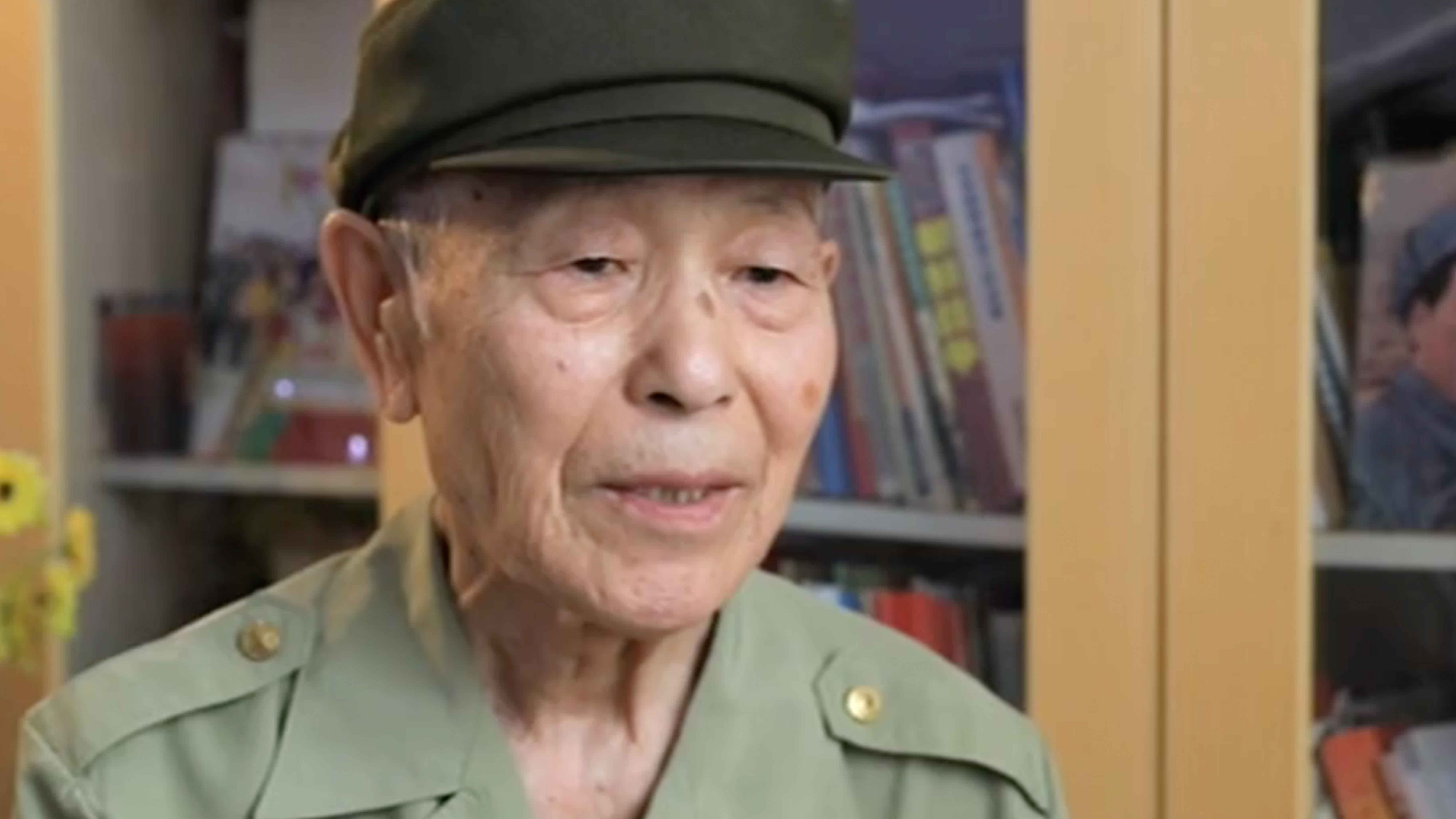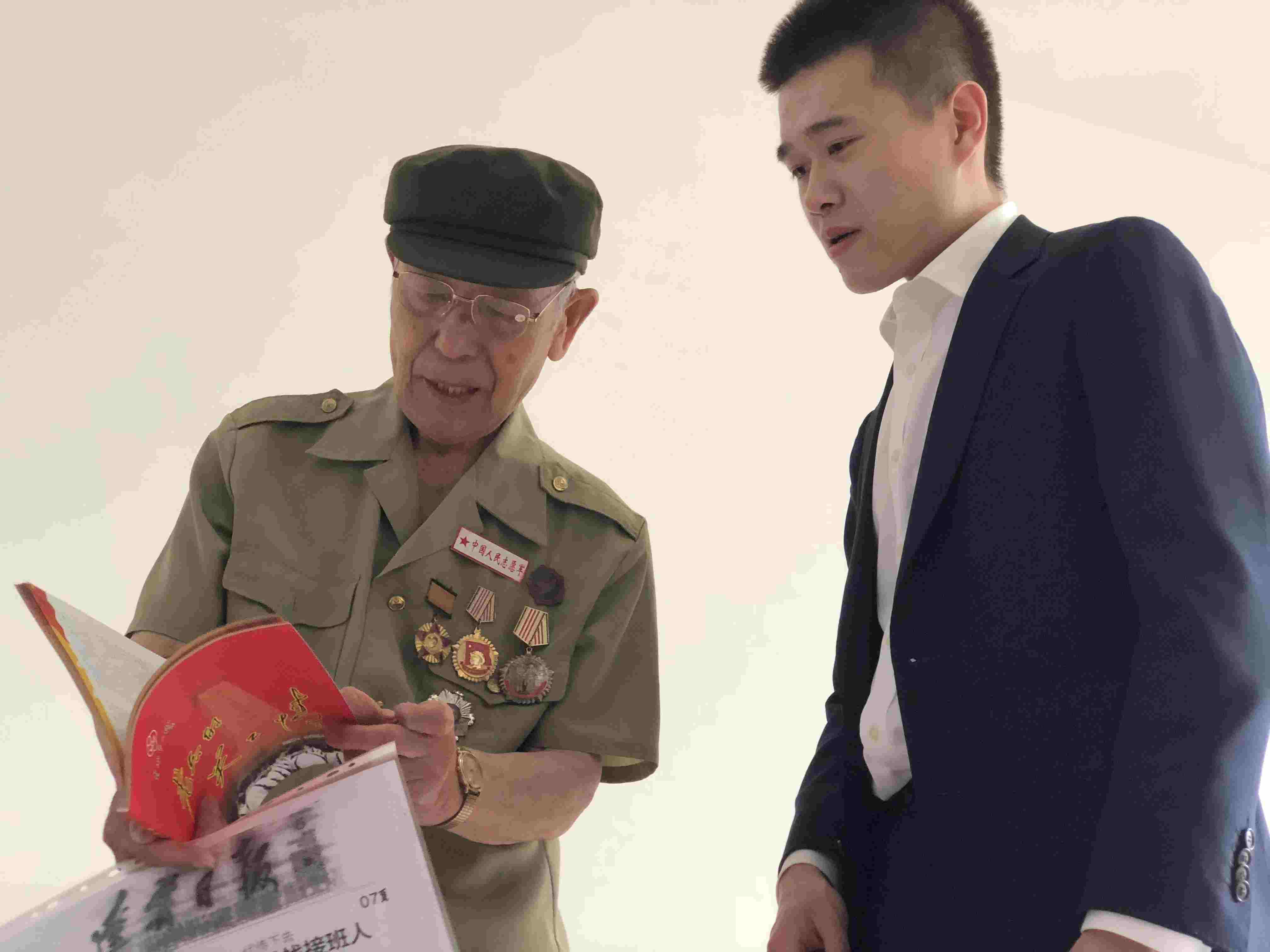
Politics
22:48, 11-Jun-2018
Korean War witnesses peaceful solution to Peninsula issues
By Xu Xinchen, Wang Yao and Liu Youzhi
02:43

After decades of tension and fear of war on the Korean Peninsula, a peaceful solution may finally be possible, and China is part of that process.
During the Korean War, China was one of the three signatories to the Korean Armistice Agreement that ended the fighting. Jing Donghui, 84, joined the Chinese Volunteer Army at age 17 to aid the Democratic People's Republic of Korea (DPRK) during the Korean War. As a Korean ethnic minority born in northeast China, he served as a translator and has been through three major battles.

Chinese Volunteer Army veteran Jing Donghui (L) shows short memoirs he wrote on the Korean War with CGTN reporter in his residence in Shenyang, Liaoning Province. /CGTN Photo
Chinese Volunteer Army veteran Jing Donghui (L) shows short memoirs he wrote on the Korean War with CGTN reporter in his residence in Shenyang, Liaoning Province. /CGTN Photo
"We marched over a hundred kilometers every day, extremely tired. Some would pass out and fell asleep alongside the road. Others would wake them up and continue the march," Jing said.
Due to limited resources, the Chinese Volunteer Army had to engage with close combats and fought with fists and knives. Jing witnessed close comrades die in front of him. He has been paying close attention to the recent developments between the DPRK and the US. In Jing's past, he has seen the difficulties caused by tension with the US, but he hopes that a peaceful solution may finally come.
"Our victory today was achieved by thousands of revolutionary martyrs. We must inherit and defend peace," Jing said.
During the Korean War, China deployed a total of over 1 million troops to aid the DPRK. The sacrifice was also huge, as many as 183,000 Chinese volunteer soldiers were believed to have died during the war.
Director of the Peninsula Studies at the Liaoning Academy of Social Sciences, Lyu Chao told CGTN that China sent the Volunteer Army to safeguard China’s safety and to aid the DPRK as the American invasion reached over the Yalu River threatening Chinese people.

Lyu Chao, director of the Peninsula Studies at the Liaoning Academy of Social Sciences speaks with CGTN in Shenyang, Liaoning Province. /CGTN Photo
Lyu Chao, director of the Peninsula Studies at the Liaoning Academy of Social Sciences speaks with CGTN in Shenyang, Liaoning Province. /CGTN Photo
On July 27, 1953, China, the DPRK and the US signed the Korean Armistice Agreement. While the agreement is not a peace treaty, it stopped the war. And since then, China has been an active supporter in bring the DPRK and US to the table to talk.
"Right now, the Korean Peninsula is moving towards a peaceful development, which China hugely welcomes, said Lyu. Adding, once a peace treaty has been reached, the armistice agreement should phase out.
"According to international laws, all parties involved in the agreement should once again be involved in that process," Lyu concluded.

SITEMAP
Copyright © 2018 CGTN. Beijing ICP prepared NO.16065310-3
Copyright © 2018 CGTN. Beijing ICP prepared NO.16065310-3